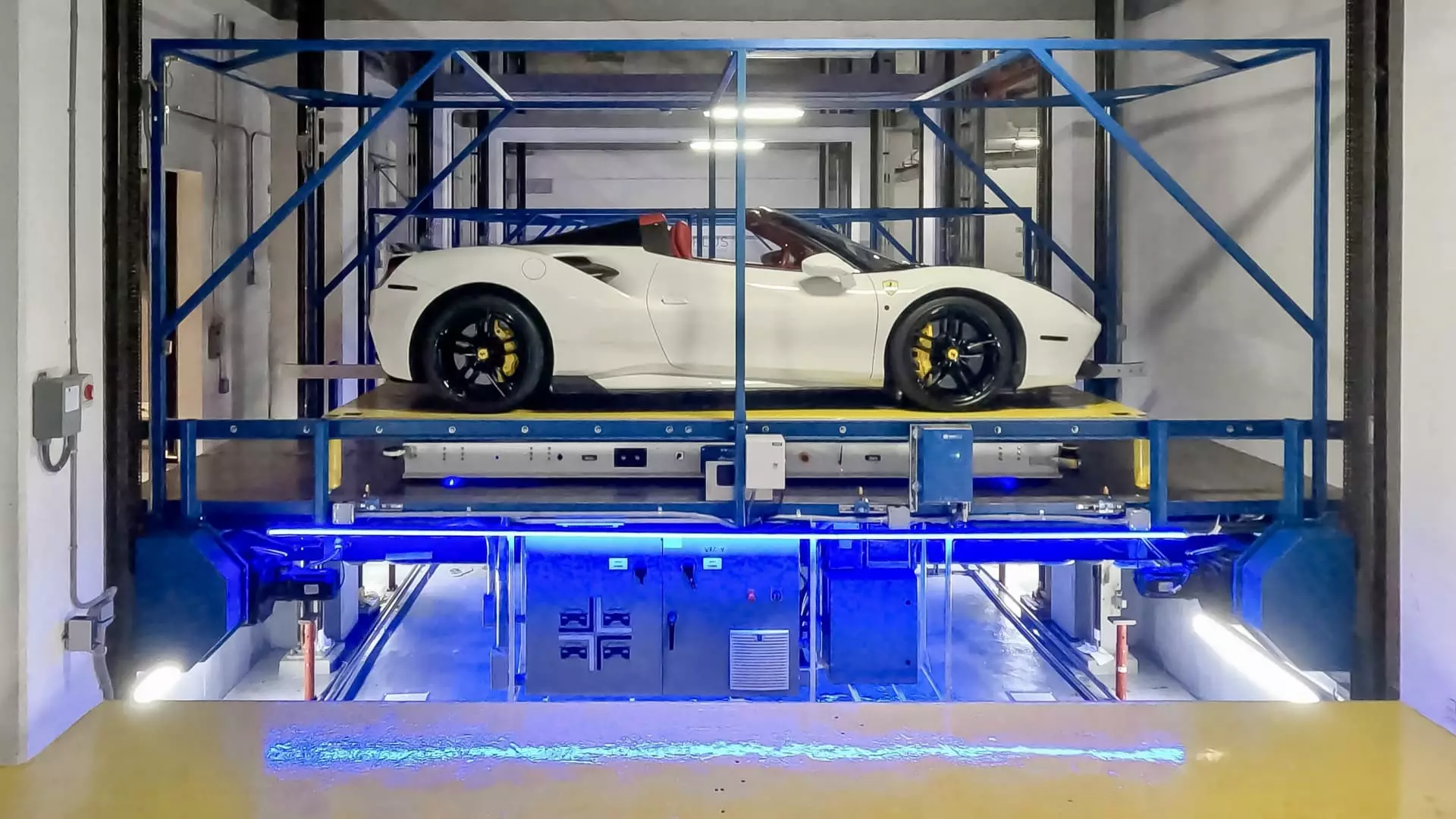In the heart of Miami, a 46-story luxury condominium, Brickell House, is redefining the parking paradigm through a highly advanced automated parking system. This futuristic innovation, featuring a 13-level garage and a fleet of robots that operate incessantly, marks a significant leap forward in the integration of technology into residential living spaces. Residents can enjoy an unparalleled level of convenience, relinquishing their vehicles to robotic valets that deftly navigate an intricate network of parking bays, car lifts, and a maze of embedded barcodes, transforming the mundane task of parking into a seamless experience.
This system epitomizes a rapidly growing trend in upscale real estate where developers aim to integrate automated solutions to enhance the living experience. The inherent value of these systems is twofold: they save time for residents and maximize available parking space, a crucial aspect in dense urban environments. With property values skyrocketing, particularly in cities like Miami and New York, where coveted parking spots can demand hefty sums, developers are investing heavily in technology that can offer both efficiency and luxury.
The Mechanics Behind the Magic
The automated parking system at Brickell House operates with advanced technology through 29 automated guidance vehicles (AGVs). These self-sufficient robots navigate the garage autonomously, utilizing vision systems and sensors to expertly steer, park, and retrieve vehicles without human interaction. The AGVs are designed to be both compact and powerful, capable of handling cars weighing up to 6,000 pounds while ensuring precision parking with minimal space between vehicles.
Notably, this system excels in efficiency; for instance, a Ferrari retrieved from the ninth level was successfully delivered to the ground floor in under four minutes. The AGVs operate under a well-coordinated structure, each tasked with specialized roles to ensure streamlined processes. This efficiency is particularly beneficial for high-density areas, allowing buildings to maximize their usable space—an essential factor in urban real estate where every square foot matters.
The Economic Impact of Smart Parking Solutions
The rise of smart parking solutions like that at Brickell House aligns with broader market trends, reflecting significant growth potential. According to Grand View Research, the global smart parking market was projected to expand from $6.5 billion in 2021 to $30.16 billion by 2030. This dramatic increase indicates a burgeoning appetite for innovative solutions in urban settings, where land is at a premium. The economic rationale for implementing such systems often revolves around optimizing space, as they can theoretically increase parking efficiency by up to three times compared to traditional methods.
However, the installation of these high-tech systems comes at a steep cost. Estimates suggest that developing an automated parking structure can range from $20,000 to $80,000 per parking spot, representing a significant financial investment for developers. Still, the potential return on investment through enhanced property valuations is compelling enough to warrant such expenses.
Despite the obvious advantages, the transition to automated systems is not devoid of pitfalls. Reports of operational failures and technical difficulties have surfaced, casting shadows over the reliability of these sophisticated setups. For example, the Brickell House was no stranger to controversy in the past, having previously grappled with an underperforming parking system that left residents unable to access their vehicles for an extended period. The experience prompted concerns about the overall reliability of automated systems in luxury residences, urging developers to address and mitigate operational risks more proactively.
Notably, the legal battles surrounding newly installed systems illustrate the potential complexities of implementing such technology. Instances of system malfunctions, such as entrapment in private garage lifts, showcase a pressing need for rigorous testing and quality assurance before full-scale operations commence. The luxury market’s embrace of automation must be accompanied by accountability, transparency, and a commitment to quality, ensuring that the promised benefits are consistently delivered.
The success of the automated parking system at Brickell House has important implications for the future of urban real estate. As cities evolve, and the demand for both residential and commercial spaces intensifies, incorporating such cutting-edge technology could become a standard. The resilience of automated systems, as evidenced by their continued use and iteration, will likely play a crucial role in the broader acceptance and integration of smart parking solutions.
Ultimately, as urban landscapes continue to shift, the fusion of technology and luxury living not only enhances the viability of real estate investments but also transforms the residential experience. Striking a balance between technological innovation and human reliability will be key to ensuring the success and growth of automated parking systems in the years to come.


Leave a Reply